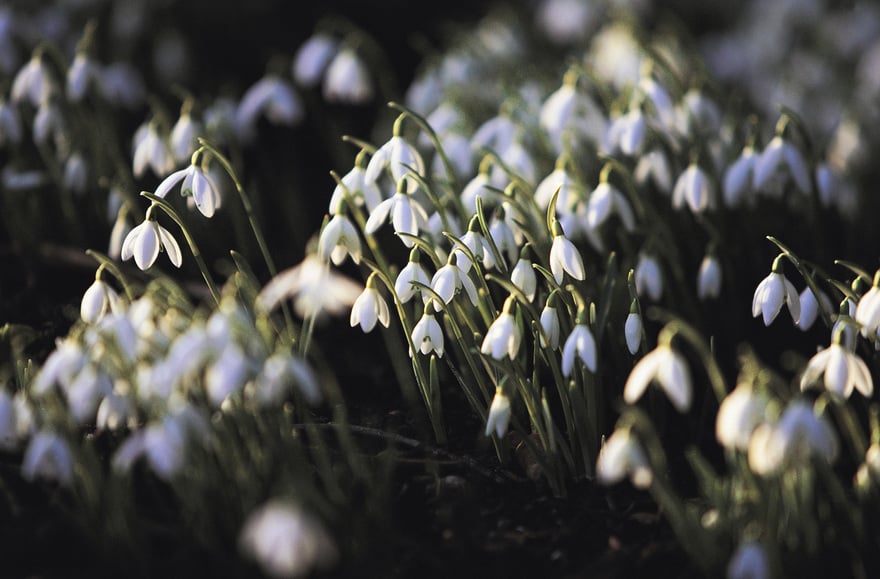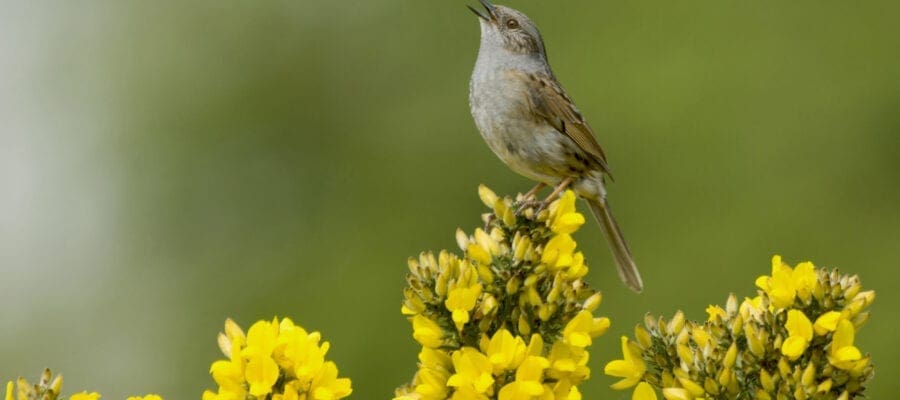It’s not just for the birds – signs of that most cheerful of seasons are all around for everyone to enjoy. All you need to do is look!
Signs of spring are sweeping across the nation, says the RSPB.
January temperatures in England and Wales were 1C above the long-term average, triggering wildlife to stir from its winter slumber earlier than usual.
Flowering plants, singing birds and the emergence of wildlife are among the beacons of spring that are sweeping across RSPB reserves.
The RSPB is calling on people to make the most of the reawakening of the natural world after an unnaturally cosy January by getting out to explore the sights, sounds and smells of spring.
Acrobatic ravens, the dawn chorus and snowdrops peeking out from the ground are among the beacons of spring that have started to pop up on RSPB reserves across England and Wales as nature starts to stir from its winter slumber.
Despite the current chilly conditions, temperatures in January were above average with parts of southern England reaching 15C, enough to trigger a reaction from some early-nesting birds looking to gain a competitive advantage on rivals ahead of the breeding season.
The dawn chorus – nature’s soundtrack – is one of the most well known and loved signs that spring is well on its way. Starting with the sweet, simple melody of the blackbird, shortly followed by the robin, wren and many others, the dawn chorus builds fast during February with more places coming alive with the sound of bird song as the month goes on.
But it isn’t just our garden birds that have been exercising their vocal cords. The booming call of Britain’s loudest bird, the bittern, was heard as early as mid-January at RSPB Ham Wall in Somerset, while the gruff, far-carrying call of early-nesting ravens have been heard on a number of reserves as they take to the skies to perform their acrobatic, tumbling displays usually only seen at this time of the year.
Debra Depledge, RSPB wildlife adviser, said: “As we emerge out of winter and into spring RSPB reserves will become a hive of activity as birds furiously prepare for the start of the breeding season. The warm January conditions will have stirred many birds out of their winter slumber earlier than usual, allowing some pioneering individuals to gain competitive edge on potential rivals by making a start on gathering nest materials, securing a patch and finding a mate.”
The warm January weather also acted as a catalyst for other wildlife. Throughout southern England, there have been a number of reports of frogs starting to spawn and newts heading towards the nearest pond as they emerge from their winter hibernation.
The sight and smell of early-flowing woodland plants such as bluebells, primrose and daffodils have also started to greet people in their gardens or while enjoying a woodland trail. These plants have evolved over many years to flower before the woodland canopy closes overhead, plunging them into darkness.

Debra Depledge added: “February is strictly still winter, but the mild January means that nature’s calendar may have advanced by a week or more, making February a month full of great promise. The flowering plants, singing birds and the emergence of many other species act as a beacon telling us spring is on its way. So rather than wait till the clocks go forward to get out and experience the wonders of nature, make the most the reawakening of the natural world after its unnaturally cosy January.”
The signs of springs arriving makes it an exciting time of the year to explore the sights, sounds and smells on RSPB reserves. From the fresh green growth pushing through the soil, bumblebees emerging and, of course, bluebells creating a stunning blue carpet in woodland glades. It’s also the mating season for many animals and this results in some bizarre behaviour. Find an RSPB reserve near you and start uncovering the amazing signs of spring, visit www.rspb.org.uk/reserves
Spring is all around! Top image: dunnock Prunella modularis, singing from the top of a gorse bush, Co Durham, May. John Bridges (rspb-images.com)
Above: snowdrops (Galanthus nivalis) are a sure sign that spring is on the way. Andy Hay (rspb-images.com)











